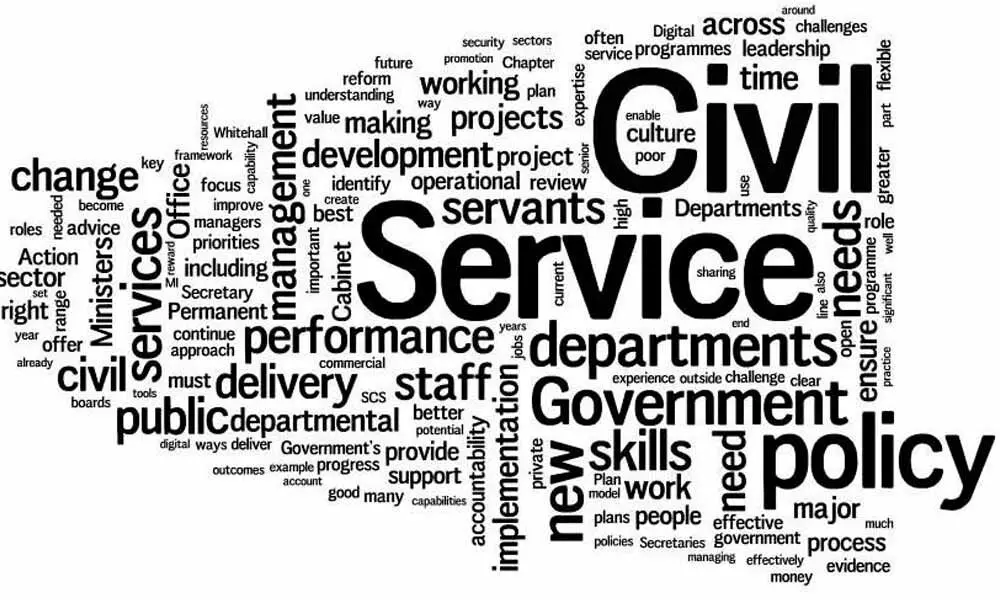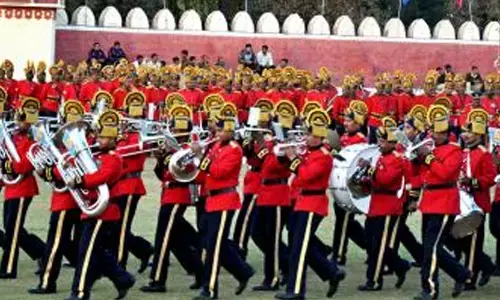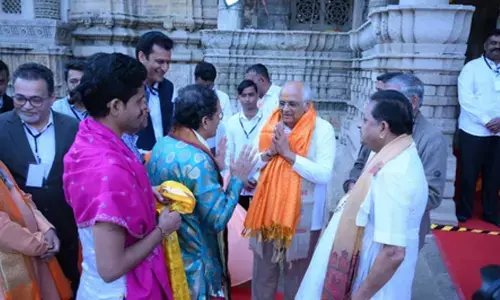Changing role of Civil Services

Changing role of Civil Services
Diversity is bound into unity by the scaffolding of the civil services. In these columns, earlier, I had shared with the readers how I had adjusted to life after my stint in the National Disaster Management Authority
Diversity is bound into unity by the scaffolding of the civil services. In these columns, earlier, I had shared with the readers how I had adjusted to life after my stint in the National Disaster Management Authority.
Among the principal activities which have not only kept me busy but have also given me immense satisfaction and pleasure has been that of mentoring youngsters aspiring for a career in the Civil Services.
I chose to limit my teaching to subjects in which I had some experience such as ethics, governance, ethics in governance, agriculture and disaster management. Ethics, in particular, proved to be a challenge as it had just recently been introduced as a subject in the syllabus prescribed by the Union Public Service Commission (UPSC) for the Civil Services examinations.
Even within that subject, I chose not to go too deeply into the theoretical and technical aspects, confining myself to areas which are relevant to the relationship between ethics and governance, as well as some case studies, drawn from my administrative experience, and from the problems set by UPSC.
Ethics, by its very nature, is a subject that is not amenable to the scientific method of experiment, observation and inference, and resides largely in the grey area between what is generally perceived to be good and bad, or right and wrong. What is more, the definition of ethical conduct varies sharply over space, time and circumstances.
In other words, what is good at one time, in a given place, and context, may not remain so after some time. The example of prohibition in the United States, or in Andhra Pradesh state, will suffice to illustrate this point. So, for that matter, will be the verdicts of the Supreme Court of India to issues such as the rights of transgender persons, or the rights of the children of live in parents.
Similarly, what is prohibited in one part of the world may well be an accepted practice in others. In most parts of the world, money is lent upon an agreed rate of interest to be charged on the principal amount. In Islamic countries, however, this is a clear no – no. Concepts of good and bad, or right or wrong, also assume different characteristics over religions.
Polygamy (at least until the recent Supreme Court judgement in the triple Talaq case), was a practice sanctioned by Islam while forbidden in Christianity or Hinduism. Other issues, such as abortion, have also been treated with varying degrees of approval, or otherwise, not only over time, but also over religions.
Having made this much clear to the students in my classes, I go on to reassure them that there is no need for confusion, or despair, over how ethical conduct should be practised in one's professional and private life. Experience, exposure and the training process, through which one is put before settling in any chosen career, usually bring clarity to these rather nebulous issues.
It is on one of the aforementioned aspects, namely training, that I wish to share some thoughts with the readers this week. And since the subjects of human resource development and, in a narrower sense, training, cover extensive areas of experience, knowledge and information, I proposed to confine myself to discussing some aspects relating to past experience, present status, and future expectations, in regard to the training of the All India Services, in particular the IAS.
One often hears people say that the IAS has lost its sheen. I view this opinion with doubt, as my own experience has shown that the civil services, both All India and State, continue to attract the best talent in the youth even today. I have, similarly, found it difficult to agree with the feeling, in some quarters, that while the UPSC does a good job of selecting the finest, the recruits soon lose their idealism and become status quoist and rule minded.
As far as the findings put out by a survey of 12 Asian countries by the Hong Kong-based Political and Economic Risk Consultancy some years ago is concerned, I feel not only that comparison with countries such as Bangladesh, Sri Lanka and Vietnam is not quite in keeping with the requirements of choosing comparable contexts and environments, but also that too much of expectation is being attached to the role of the civil services in improving the performance of the social indices of a country.
The system of governance, the policy environment, the contributions of stakeholders such as the corporate sector, academic institutions, scientific and technological institutions, non-government organisations (NGOs) and Community Based Organisations (CBOs), after all, also have a significant role to play. The complaint that the IAS is a generalist service lacking in expertise in specialised areas, also, I find, to be specious and weak.
The expectations from the civil services have naturally changed over time. From being the successor to the Indian Civil Service, a service that was described by Pandit Nehru as 'neither Indian, nor civil nor a service", the IAS, it was hoped, would emerge, over time, as a contemporarily appropriate version of its predecessor, with an outlook compatible with the democratic form of governance, as envisaged in the Constitution of India, which was just being put in place.
I, for one, strongly feel that the IAS has fulfilled that expectation, and in good measure. While administrators are no longer regarded as belonging to the so called "steel frame" of Sardar Patel's dream in the 1950s , they have certainly played a decisive, and significant role in moulding the character of the body politic as it came of age, and matured into a vibrant and robust Union of States.
No other career in the country places so much authority in the hands of a person at such a young age and, offers such a wide variety of exposure to different areas of the administrative canvas, from culture to space and from education to industry. Therefore, by the time an IAS officer reaches a senior level, he/she develops a certain roundness of personality and acquires qualities which make for expertise in administration.
Another Achilles heel of the civil services has been the vulnerability to charges of graft, something that comes with the turf. Given the high profile, and extremely visible, lives of civil servants, as also their unavoidable proximity to political leaders and businessman, a certain a good deal of such accusations are frequently exaggerated and can be put down to understandable resentment and jealousy.
Here, again, I wonder why the fact is overlooked, that people from the highest levels of the political leadership, the judiciary, Parliament and State Legislatures, the corporate sector scientific institutions, and even sportsmen have been accused of, subjected to investigation, charged for, tried and convicted upon charges of corruption.
It is a matter of some consolation that even the worst critics of the IAS admit that the large majority of them remain untainted by charges of corruption and have been able to resist forces that employ the twin instruments, of fear and temptation, to lead them astray from the straight and narrow path.
This is not to say however, that there is no such thing as the much touted businessman, political leader, civil servant nexus. In fact the former Chief Minister (the then) Mulayam Singh Yadav, Uttar Pradesh, pointed out that if people came to him (from within the civil service), for personal favours he would naturally extract his price from them. A quid pro quo, in other words. And the scams that have been unearthed in recent times have only served to highlight the malady.
Yet, it is the exceptions that prove the rule. The sterling qualities of integrity and probity in public life that the members of the Civil Services have preserved in extremely trying circumstances, continue to constitute one of the pillars on which the governance apparatus of the country stands.
(The writer is former Chief Secretary, Government of Andhra Pradesh) Dr Mohan Kanda








